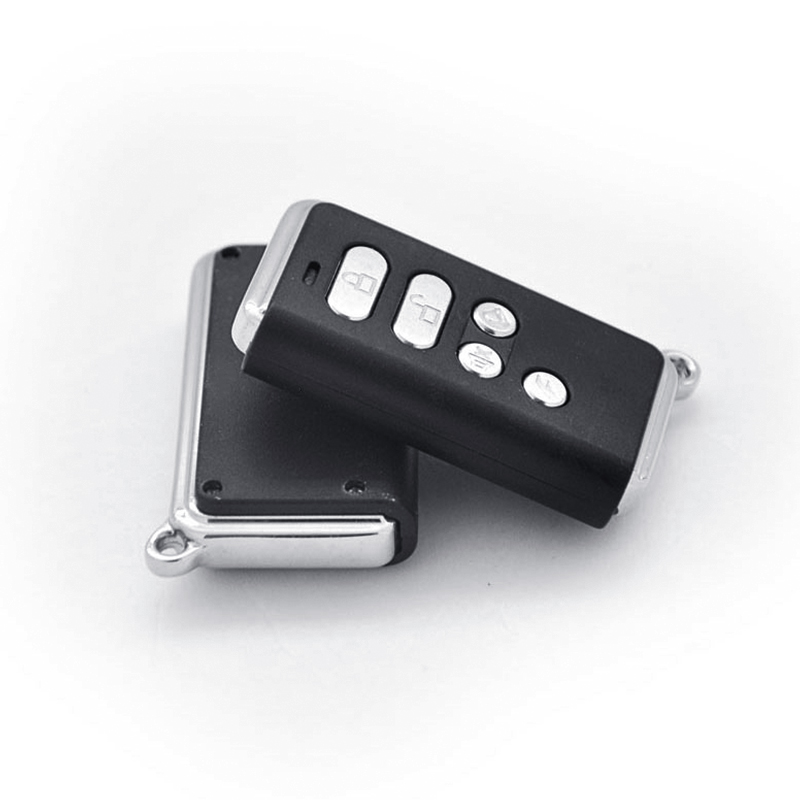Garage door remotes are a crucial component of modern convenience, allowing homeowners to operate their garage doors with the simple press of a button. However, the performance and reliability of these remotes are heavily influenced by the type and life of the batteries they use. This article explores how battery life and type impact the performance of replacement garage door remotes and provides tips for ensuring optimal operation.

The Importance of Battery Life
Battery life is a critical factor in the performance of garage door remotes. Here's how it affects functionality:
1. Consistency of Signal Transmission: A remote with a fully charged battery sends a strong and consistent signal to the garage door opener. As the battery depletes, the signal may weaken, leading to intermittent performance or failure to open the door.
2. Response Time: Batteries in good condition ensure that the remote responds quickly when a button is pressed. Low battery levels can result in delayed or unresponsive operation, which can be frustrating and inconvenient.
3. Maintenance and Replacement: Frequent battery changes due to poor battery life can be a hassle. Using long-lasting batteries reduces the frequency of replacements and ensures continuous, reliable operation.
Types of Batteries for Garage Door Remotes
Different types of batteries are used in garage door remotes, and each type has distinct characteristics that influence performance:
1. Alkaline Batteries
Commonly Used: Alkaline batteries are widely used in many electronic devices, including garage door remotes.
Pros: They are readily available, affordable, and provide a good balance between cost and performance.
Cons: Alkaline batteries have a moderate lifespan and may leak over time, potentially damaging the remote.
2. Lithium Batteries
High Performance: Lithium batteries offer superior performance and longer lifespan compared to alkaline batteries.
Pros: They provide consistent power output, are less likely to leak, and perform well in extreme temperatures.
Cons: Lithium batteries are more expensive than alkaline batteries but offer better value due to their longevity.
3. Rechargeable Batteries
Eco-Friendly Option: Rechargeable batteries are an environmentally friendly alternative that can be recharged and reused multiple times.
Pros: They reduce waste and long-term costs associated with single-use batteries.
Cons: Rechargeable batteries may have a slightly lower voltage output and require a charger, adding to the initial investment.
How Battery Type Affects Performance
1. Voltage Stability: Different battery types provide varying levels of voltage stability. Lithium batteries, for example, offer stable voltage throughout their lifespan, ensuring consistent performance. Alkaline batteries, on the other hand, experience a gradual decline in voltage, which can affect remote performance over time.
2. Temperature Tolerance: Garage door remotes are often used in environments with varying temperatures. Lithium batteries perform better in extreme hot or cold conditions, maintaining their efficiency, while alkaline batteries may struggle, leading to reduced performance or failure.
3. Size and Compatibility: It's essential to use the correct battery size and type recommended by the remote manufacturer. Using incompatible batteries can lead to poor performance or even damage to the remote.
Tips for Maximizing Battery Life and Performance
1. Regular Maintenance: Check the battery status regularly and replace them before they are completely drained to avoid unexpected failures.
2. Proper Storage: Store spare batteries in a cool, dry place to extend their shelf life.
3. Avoid Mixing Types: Do not mix old and new batteries or different types of batteries in the same remote, as this can cause leakage or reduced performance.
4. Follow Manufacturer’s Recommendations: Always use the battery type recommended by the manufacturer to ensure optimal performance and longevity.
Conclusion
Battery life and type significantly impact the performance of replacement garage door remotes. Using the appropriate batteries with a long lifespan and stable voltage output ensures reliable and consistent operation of your garage door remote. Whether you opt for alkaline, lithium, or rechargeable batteries, understanding their characteristics and following best practices for maintenance and replacement will help you keep your garage door remote functioning smoothly.

-
Office ViewQinuo Electronics Co., Ltd.was founded in 2009,it is a high-tech company that integrated R & D, manufacturing, sales and service for 15 years,which is mainly specialized in providing sensors of automatic door, control system of door and gate, car key remote, auto parts etc. The company currently has four independent brands: U-CONTROL, U-SENSORS, U-AUTOGATES and U-AUTOKEYS.
-
got questions? call us
+86 13960286508
-
fax :
+86 595 22901208 -
Email :
[email protected]
-
address
- No.991 Xingxiu Road,Taiwanese Investment Zone, Quanzhou, Fujian Province,P.R.China











